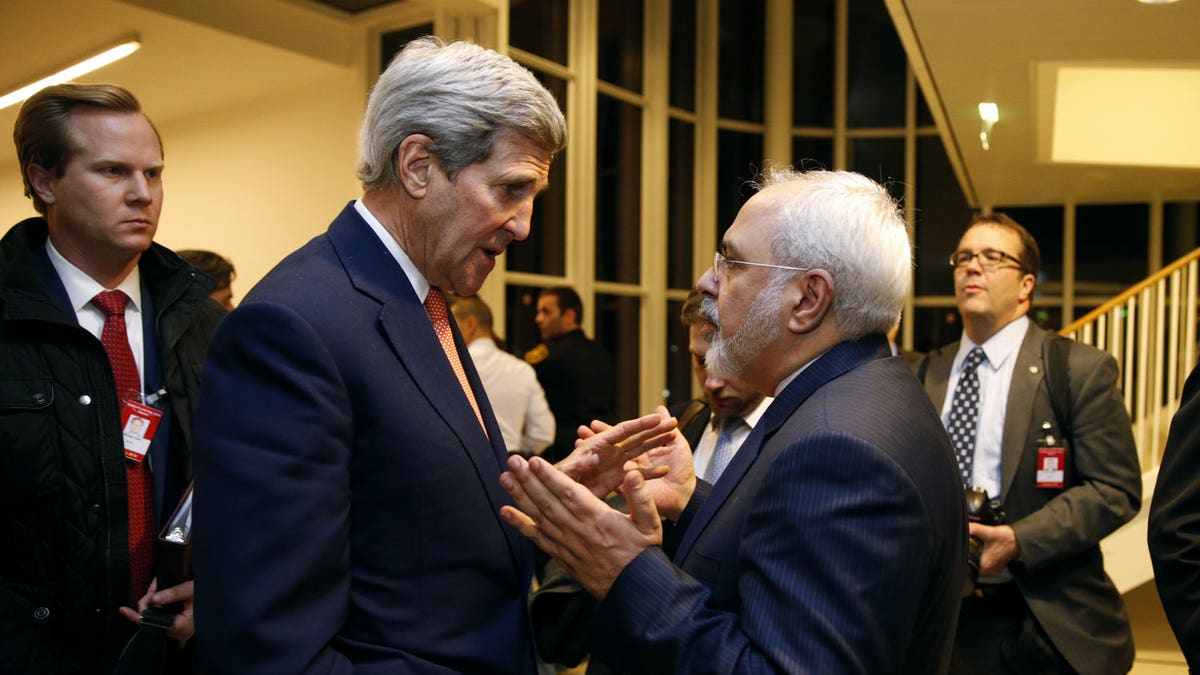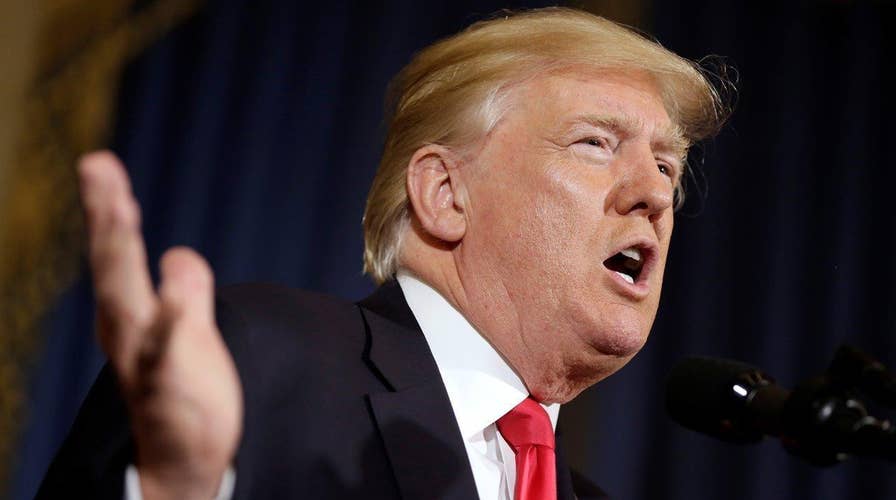Trump administration ramps up efforts to police Iran
The secretary of state informed the House speaker the U.S. will work with allies to address what he calls the considerable flaws in the nuclear deal; Rich Edson has the details for 'Special Report'
Let’s assume President Trump decides the Iran Deal is not a good thing for the United States, which is becoming clearer every day, and he wants to exit. What can he actually do? The answer is: Pretty much anything he wants. Because President Obama flagrantly refused to treat this treaty as a treaty, it has very little legal standing. If he is willing to take the political and diplomatic heat, President Trump could take it out onto the West Lawn at the White House, douse it with lighter fluid and burn it.
If he chooses a more conventional method, he has several options and requirements both domestically and at the UN, where President Obama expanded the Joint Coordinated Plan of Action (JCPOA) into a UN Security Council resolution.
One option is to declare that an agreement this important deserved to be done in accordance with the Constitution. He can submit it to the Senate for their “advice and consent” and then see if 67 Senators want to sign on. They won’t, because they know this deal is a debacle. They punted via filibuster and didn’t even vote when it came up under the Corker-Cardin act which was designed to give a fig leaf of Congressional oversight.

This option has two major pluses: it remedies a bad piece of executive overreach by President Obama in pretending an obvious treaty was not one to avoid a Senate vote; and it also involves Congress in the decision to withdraw from the deal. Since this will be a provocative and in some ways dangerous move, it would be important to have as much U.S. cohesion as possible to show a strong front to the world.
It will be dangerous to withdraw from the deal. But failing to withdraw will leave the Iranians on a glide path to full nuclear capability and that is a much more dangerous prospect.
This or any other repudiation of the deal by President Trump would still leave the UN Security Council Resolution UNSCR 2231 intact. But there is a mechanism in the resolution that allows the U.S. to state Iran has not complied with the deal and then use our veto to stop any pushback against that claim. If we hold fast, then the sanctions on Iran that have only been suspended snap back into place.
A second option is to pressure Iran in ways that ultimately lead them to withdraw. Iran has been acting in bad faith all along. They got their reward in cash from the Obama administration and removal of sanctions, but never really meant to stop their goal of becoming a nuclear power. If the deal becomes inconvenient, they’ll walk away themselves.
The Iranians seem to be starting down that road on their own. They just brought a list of their complaints about U.S. non-compliance to the JCPOA commission tasked with hearing disputes. It is a stunning act of chutzpah for Iran to be the onecomplaining, but it may offer a way for the president to let them talk themselves out of the deal. That would free us to put actual pressure on them.
The main impediment to President Trump acting on his promises and good instinct to get us out of this awful deal is the collective inertia of his cabinet to leave it in place. The State Department is heavily invested in it, and several other senior leaders have urged him not to withdraw. But the president rightly believes this deal is bad and dangerous, and told them he did not want to certify Iran as compliant again and assigned other advisers to work the issue.
It will be dangerous to withdraw from the deal, as Iran will almost certainly react in troubling ways. But failing to withdraw will leave the Iranians on a glide path to full nuclear capability and that is a much more dangerous prospect.

